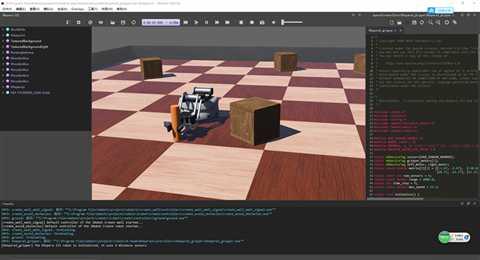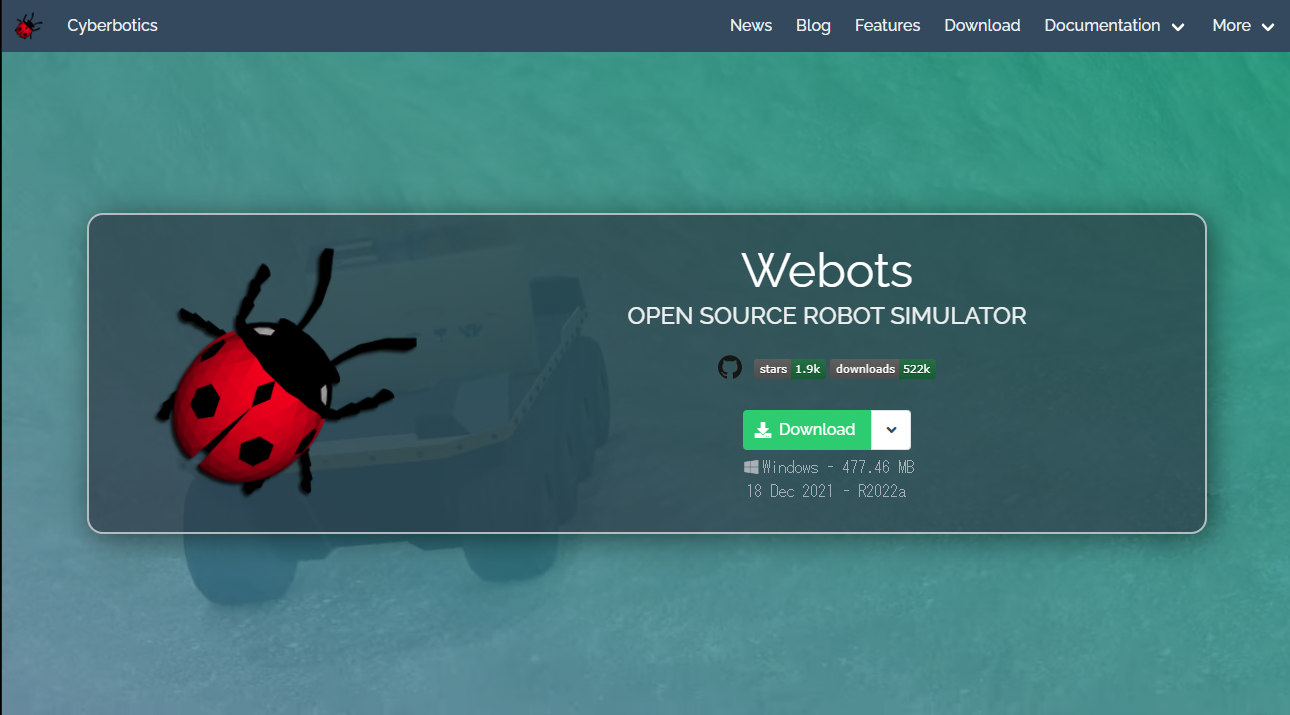

In this configuration, the IR sensor measures the light of the nearby environment. First, only the received light is measured. An IR sensor is a device which can produce an infrared light (a light which is out the range of the visible light) and which can measure the amount of the received light. Infrared (IR) sensor: An e-puck possesses 8 infrared (IR) sensors.The accelerometer can be used for detecting a collision with a wall or for detecting the fall of the robot. If your e-puck is at rest, the accelerometer indicates at least the gravitational vector. Accelerometer: An accelerometer is a device which measures the total force applied on it as a 3D vector.

They can also be used for illuminating the environment. The aim of these LEDs is mainly to have a feedback on the state of the robot.

The front LED is more powerful than the others. Notably, 8 around it, 4 in the e-puck body and 1 in front of it.
#WEBOTS EXERCISE CURRICULUM FILES FULL#
Stepper motor: A stepper motor is an electrical motor which breaks up a full rotation into a large number of steps.You will see in the next chapter all these devices in more details. The following list gives you a quick definition of these devices. In this exercise, you will discover the utility of each of them. Through this document, you will use some of them: the stepper motors, the LEDs, the accelerometer, the infrared sensors and the camera.
#WEBOTS EXERCISE CURRICULUM FILES HOW TO#
You will discover how to use it and what are the notions related to it.ĭiscovery of the e-puck Īs explained in the chapter E-puck and Webots, an e-puck has different devices. This module enables to program an e-puck robot using a graphical interface. And finally, you will program a simple robot behavior by using a Webots module: BotStudio. Then, you will acquire the concept of a robot controller. First, you will discover some e-puck devices and their utility. The aim is to learn the basics of mobile robotics by manipulating both your e-puck and Webots. You don't need prior knowledge to go through these exercises. This chapter is composed of a series of exercises for beginners. 5 Better Collision avoidance Algorithm.4.2 Open the World File and move Objects.4 Simple Behavior: Finite State Machine (FSM).2.2 The Webots Windows and the simulation Camera.


 0 kommentar(er)
0 kommentar(er)
